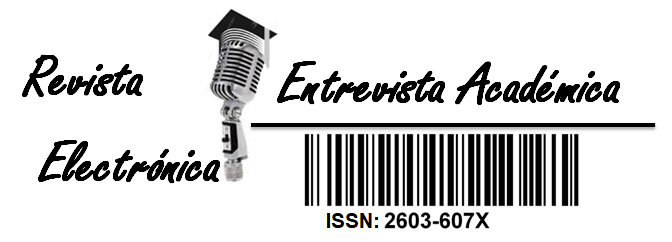
Revista Electrónica: Entrevista Académica / ISSN 2603-607X
LA PLANIFICACIÓN DOCENTE DE LAS INSTITUCIONES EDUCATIVAS RURALES: UNA PROPUESTA DESDE LA UNAE
Autores e infomación del artículo
Mgter. Róbinson Andrés Romero Chávez
Universidad Nacional de Educación
romerochavez1965@yahoo.com
RESUMEN
El trabajo investigativo realizado es una labor motivada por el conversatorio continuo con los docentes en las visitas a las instituciones educativas, especialmente de la zona rural de donde provienen los estudiantes de la carrera de Educación General Básica Modalidad: Distancia, que lleva adelante la UNAE desde el Centro de Apoyo de San Vicente–Manabí. En los diálogos sostenidos con los profesores se evidenció que no han recibido capacitaciones presenciales sobre el manejo y conocimiento del nuevo currículo nacional propuesto por el Ministerio de Educación, así mismo, desconocen la forma de planificación curricular actualizada. Sobre esta base, se realizó un abordaje a los componentes del currículo nacional expedido en el 2016, de igual modo, a la planificación y a sus elementos contentivos. Además, se enfoca al docente, sus características fundamentales y al estudiante se señala que es el corazón y centro del sistema educativo, en el que se concreta todo lo programado y preparado por el profesor. Como consecuencia a esta problemática, se proponen alternativas que le permita a los docentes empoderarse del currículo nacional y de la forma de planificación del mismo al ser esencializado en el aula de clases que es el objetivo final, para que los estudiantes obtengan aprendizajes significativos y duraderos, que los puedan poner en práctica en contextos diferentes al aula de clases, es decir, que realizar la metacognición.
Palabras clave: Currículo nacional, planificación macro, meso y micro curricular.
ABSTRACT
This investigative word is a labor motivated by the discussion with the teachers in the educational institutes, especially the rural zone, where the students of the UNAE’s distance career in San Vicente support center come. In the talk with the teachers was evident that they haven’t had presence training about the management and knowledge of the new national curriculum made by the Minister de Education (Magisterium of Education), likewise they don’t know about the pattern of the current curricular planning, based on this we made an approach to the components of the national curriculum issued in 2016. Also, we approach the planification and the elements it has. It’s focused in the teacher, its essential characteristics and about the student we point out that is the heart and the center of the educative system, where is define everything that the teacher prepared and programmed. As a consequence of this problematic, we propose alternatives, so the teacher can be empowered with the national curriculum and the pattern of planification for it to be applied in the classroom, because it is the final objective, this way the student will get long lasting and significative learning, so they can put them into practice in different contexts to the classroom, that is, they can do metacognition.
Key words: National curriculum, planning macro, I pull out and microcomputer curricular.
Para citar este artículo puede utilizar el siguiente formato:
Romero Chávez RA. (2019) La planificación docente de las instituciones educativas rurales: una propuesta desde la UNAE. REEA Vol. 1, No. 4. Agosto, 2019. http://www.eumed.net/rev/reea/agosto-19/planificacion-curricular.html
Recibido: Agosto 2019 Aceptado: Agosto 2019 Publicado: Agosto 2019
Nota Importante a Leer:
Los comentarios al artículo son responsabilidad exclusiva del remitente.
Si necesita algún tipo de información referente al articulo póngase en contacto con el email suministrado por el autor del articulo al principio del mismo.
Un comentario no es mas que un simple medio para comunicar su opinion a futuros lectores.
El autor del articulo no esta obligado a responder o leer comentarios referentes al articulo.
Al escribir un comentario, debe tener en cuenta que recibirá notificaciones cada vez que alguien escriba un nuevo comentario en este articulo.
Eumed.net se reserva el derecho de eliminar aquellos comentarios que tengan lenguaje inadecuado o agresivo.
Si usted considera que algún comentario de esta página es inadecuado o agresivo, por favor, escriba a lisette@eumed.net.